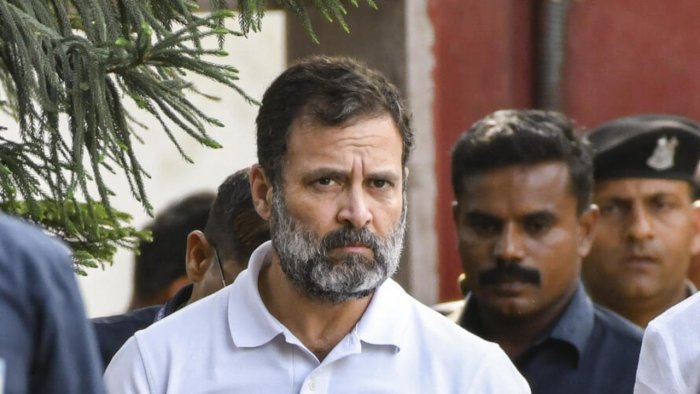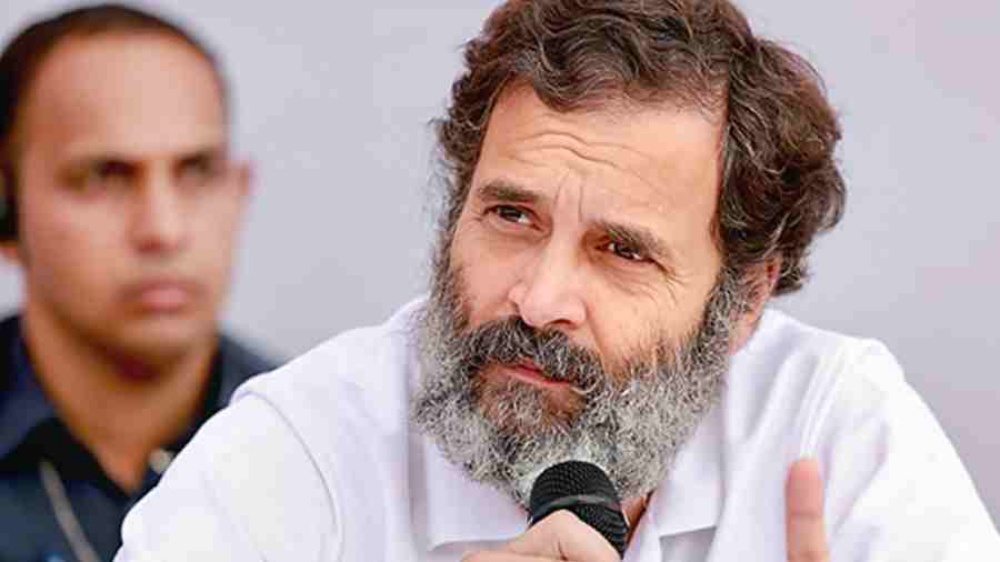In Indian politics, a new era has begun. When the ruling party seizes control of the Republic’s institutions, as has happened in India recently, the opposition must resort to more clandestine strategies. To better connect with the people, Rahul Gandhi first immersed himself in Parliament and then set out on a Bharat Jodo Yatra. The governing government felt they had to eliminate him as a threat.

It’s the beginning of a brand new series. When the institutions of the Republic are taken by the governing party, as is the case in India at the moment, the opposition is left with few options for bringing about change. First, Rahul Gandhi put his money where his mouth is, in parliament, where he denounced attacks on democracy and the nexus between the Modi government and new oligarchs. However, this was clearly not enough, as parliament has been emasculated (so much so that some of the debates which took place there during the Emergency compare favorably with what we see today) and speeches made in the Lok Sabha are no longer reported in the “mainstream” media.
The opposition leader had to meet with the people face to face, or else the masses would continue to reject the truth in favor of the propaganda they were fed. After the recent party elections, the Bharat Jodo Yatra was also used to re-mobilize the Congress cadres. This 4,000-kilometer yatra was a success despite very poor media coverage (both qualitatively and quantitatively): Congress was returning to its pre-independence roots as a social movement bringing together all kinds of people at a time when the dominant majoritarian doxa tends to exclude so many citizens from the official nation.

The inevitable next step was for Rahul Gandhi to be “neutralized.” Defamation of the Modis of the world is the only excuse that has been given. This seems contradictory, considering the sarcasm with which Narendra Modi has referred to himself in the past (see: “Pasta behen,” “Jersey cow,” and “Maun Mohan Singh”). Yet, a more satisfactory alibi was not forthcoming. As members of parliament who are given prison terms of more than two years are automatically disqualified, this tactic served its intended purpose of expelling Rahul Gandhi from the legislature.
At a time when the Indian and international corporate communities are holding their collective breath, this action demonstrates the great uneasiness of the authorities who plainly anticipate more talks on the links between Gautam Adani and Narendra Modi in parliament. Such actions are always Plan Bs, taken in an effort to head off catastrophe. This damage control effort, however, will have unintended repercussions.

To begin, in modern democracies, opposition leaders are not typically convicted and imprisoned for petty offenses like this one. By watering down its soft power six months before the G20 meeting, when it was expected to promote its image as the “mother of democracy” and the “Guru of the word,” India is diminishing its claim to both titles. Second, this kind of violent action helps bring the opposition together, just like it did in Turkey, Israel, Hungary, and Poland. The arrest of Manish Sisodia just reinforced what Rahul Gandhi’s opponents, like Arvind Kejriwal, already knew: that this dictatorship poses an existential threat to all dissenters, including them.
When opponents band together, authoritarian dictators have an uphill battle; their policy of polarization backfires. Unless they can recruit new followers, the current circumstances “push” them to become even more illiberal, hence the ability to reproduce the Jyotiraditya Scindia “model”/syndrome is an essential aspect to consider when evaluating India’s political condition in the future weeks and months. State party chieftains in Maharashtra and Tamil Nadu may be joined by their counterparts in Delhi and Punjab, as well as in Bihar, Uttar Pradesh (where Mayawati may return to active politics one day), West Bengal, Odisha, Jharkhand, and Kerala. Karnataka’s upcoming election results (together with those of Madhya Pradesh, Chhattisgarh, and Rajasthan) will, of course, also set the stage for the 2024 Lok Sabha elections.
Finally, the country’s leaders could make matters worse by disqualifying Rahul Gandhi (and possibly sending him to prison). If he ends up in prison, the repertoire of those claiming victimhood could easily switch sides. Since 2002, Narendra Modi has portrayed himself as a victim of the establishment, which he equates with the likes of the “liberals,” “Lutyens Delhi-ites,” and the “Khan market gang.” As a “chaiwallah” and an OBC, he claimed to personify the pain of the common people who are also the direct victims of these elite groups.
Rahul Gandhi’s disqualification may be a turning moment, but the ball is in the court of the opposition, of the judiciary — and in the court of Rahul himself! I do not anticipate any response from the West, whose interests are no longer expressed in terms of democratic ideals, and whose participation in the discussion may be unhelpful anyhow, as seen by the outrage produced by Rahul’s recent comments in the UK.

